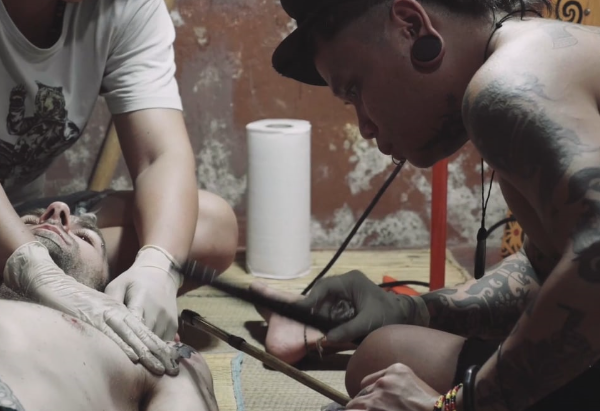BEFF
'Borneo Eco Film Festival'
Q&A with BEFF
Facebook: BorneoEcoFilmFestival
Website: http://www.beff.org.my/
Youtube: Borneo Eco Film Festival BEFF
B: Borneo Art Collective
BEFF: Borneo Eco Film Festival
B: Describe your organization and film projects. Tell us the story of your investigation?
BEFF: Borneo Eco Film Festival is an annual non-profit event that celebrates Borneo’s biocultural diversity through environmental cinema and a community film making programme. As an organisation, we do not produce our own films, rather provide a training platform for community film makers to learn the art of film making and storytelling.
2016 Borneo Eco Film Festival
B: Why and how did you start your film making programme?
BEFF: The Suara Community Film Making Programme is the brainchild of BEFF’s co-founders, Dr. Agnes Agama and Anton Ngui. It began in 2011 with just four participants and to date, we train up to 50 participants on average during the festival. Dr. Agnes and Anton felt that at that time, there was no similar platform for local and indigenous communities to share their stories with their own voices, and film – in their opinion – was the most powerful tool to present these stories to the world. Hence, the Suara Community Film Making Programme was born!
Suara Community Filmmaking Workshop
B: Who/what influenced you to begin this film making programme?
BEFF: Our local communities.
B: Tell us about the programme you would like to share with our audience? What is the big message you are trying to deliver through these projects?
BEFF: Speaking on behalf of the Suara community film makers (as they are the producers and directors, not us), the content varies with each community but it all revolves around the same theme of social change, relationships with the environment and capacity building. Each community will come to us with a story in mind and over the course of a year (normally 4 workshops), our trainers will assist in making their vision a reality through conceptual and technical training (i.e exploring the narrative, shooting, editing etc.). During the festival in Sept/Oct, selected groups will screen their final film for the public.
B: Where do you see film making evolving in the near future? What are you trying to achieve at this point?
BEFF: For us at BEFF, we see film a powerful tool for education, information and engagement. We live in a very visual culture where people are more likely to relate and react when they are SHOWN something, as opposed to being TOLD. Film has always been very evocative – it plays with our emotions, it compels us to do things, it makes us feel emotions. With the Suara programme, we hope that our local and indigenous communities realise the power of their own voices and that the heart of their stories lie within them. Given the right platform and tools, our communities have a wonderful opportunity to share with the world the richness of the their culture and heritage, as well as the social, cultural and environmental issues that they face each day. For example, who better to tell the plight of a village affected by the building of a dam than the villagers themselves? So at this point, our objective is to help our local communities not only find their voice, but share it with the world through the medium of film. And, hopefully, to create more local film makers!
BEFF 2016 at Suria Sabah Shopping Mall
B: How do you see Borneo film making potential at the moment?
BEFF: The potential is there but it is very much at its infancy at this stage. We have emerging Sabahan film makers making their mark and this is a good sign. But we need more avenues where we can encourage and support our local film makers to create and share quality content.
BEFF at Rhythm of Rimba, Sandakan, Sabah
B: How could people access your programme at the moment? Is there any public participation/volunteer you allow in your project/group?
BEFF: All workshop made films are posted on our YouTube channel. If and when the respective community filmmakers grant us permission to do so, we will also post their community-made films on our YouTube channel. Usually, it’s the community filmmakers themselves who post it online (on their own accounts) and we link to their original posting. Most of the time, the community filmmakers have a specific audience in mind when they make their films and they screen specifically to those audiences (for example, our film makers from Hutan and KOPEL use their films for their community extension work, and at stakeholder meetings and conferences).
B: What would be your message to aspiring fellow Borneo film makers/Artists?
BEFF: That sometimes they don’t need to look far for inspiration. Borneo is full of stories waiting to be told, and with what better voice than our own. Stay authentic but be bold!





